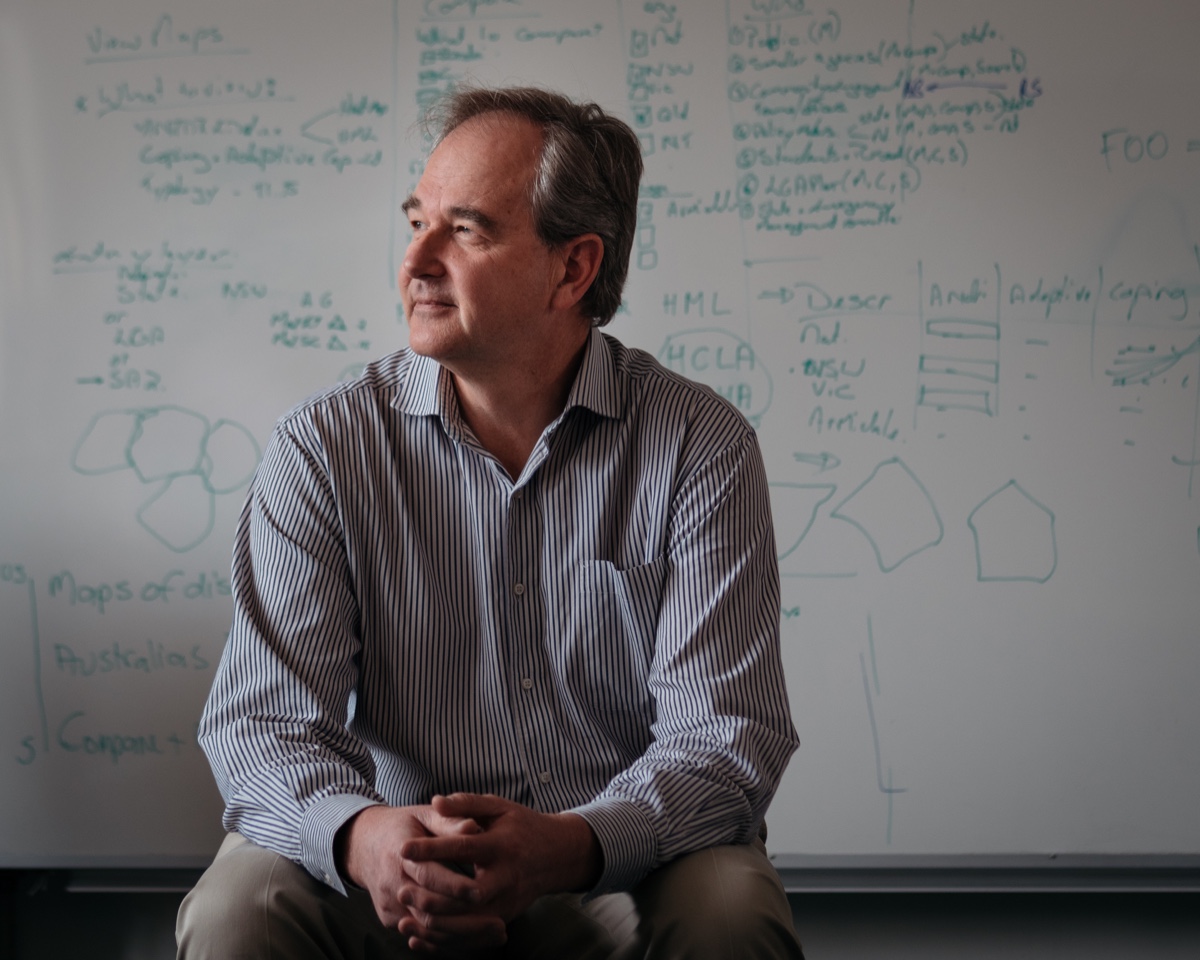There are data, data, everywhere, but how do researchers drink from the firehose? At the University of New England (UNE), a new independent unit of data specialists has been formed to do it for them.
The Computation, Analytics, Software and Informatics (CASI) unit recognises that the path to research impact increasingly demands a dive into data, but that data analysis and transformation requires skills beyond the reach of most researchers.
CASI's manager, Johan Boshoff, describes the unit as a “data transformation hub” that can help build bridges between research and commercialisation.
“We give researchers direct access to a centralised team that works right across the data development spectrum," Mr Boshoff said.
"The team has the skills to pull in data as signal and transform it into substance. We do data analytics and modelling, user interface design, software and hardware architecture, data analytics and interface development."
"Our lines of communication are short, which means we are directly accessible to our project partners at each stage of the process.”
The CASI team is directly accessible to UNE's researchers and research centres, but also available to external industry, research and development agencies and other educational institutions on a tiered fee system.
The unit had its beginnings in a data transformation partnership between the Sheep Cooperative Research Centre (Sheep CRC) and the University.
The Sheep CRC, which had its headquarters at UNE, wanted to turn huge volumes of data into practical solutions for the sheep industry. The highly specific nature of the work led to the search for an in-house solution. Mr Boshoff, an experienced programmer, took on the work and built a team – most of which subsequently transferred to CASI.
That initial partnership produced groundbreaking products, including RamSelect and ASKBILL, data+software packages which put the analytical power of massive databases into the hands of farmers via their smartphones.
RamSelect puts a user-friendly interface on the deep data resources of Australia’s sheep benchmarking databases, to help breeders select rams that advance their production goals.
ASKBILL is new-generation software that draws on multiple sources of data – referencing global climate, on-farm weather, genetics and farm management records – to predict pasture and livestock production and potential risks to the sheep flock.
The Sheep CRC's in-house approach to data transformation proved so successful that UNE decided to formalise the concept of a dedicated team of freelancing data specialists.
As it wrapped up operations in June 2019, the Sheep CRC announced that it would be transferring all its software intellectual property to UNE, including RamSelect and ASKBILL.
Those packages are now being maintained by CASI on behalf of UNE, ensuring CASI has a firm business foundation from the outset. UNE will continue to invest in the products to improve their reach within industry.
The ink is barely dry on the UNE-CASI agreement, but the unit has already been booked to near-capacity by researchers and R&D organisations eager to collaborate with data experts who understand the research environment.
CASI's list of current projects is diverse:
* taking ASKBILL's predictive capacity to the next level by linking production information with supply chains, so that the software's predictions can be used well beyond the farm gate.
* supporting an agricultural R&D organisation in its efforts to dis-aggregate national data into regional data, so that it can better target services;
* enabling research by building a tool to track the efficiency of sniffer dogs as detectors of biosecurity threats.
* building a platform for the Bushfire and Natural Hazard CRC to visualise the disaster resilience of communities around Australia;
* fine tuning the accuracy of lamb carcase predictions using information about live weight and pastures.
* online ordering and sample tracking systems to increase the efficiency of lab based testing services.


